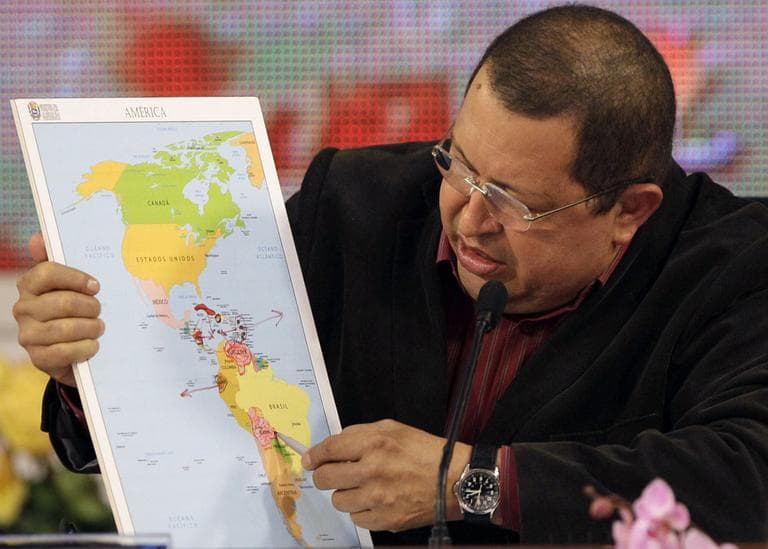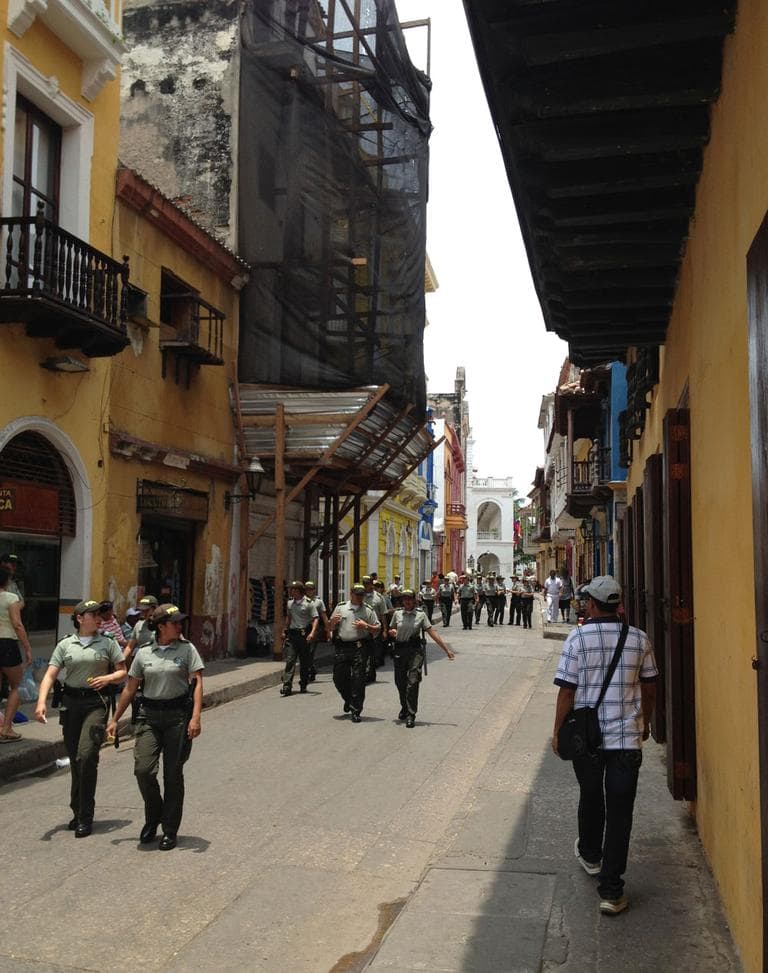Advertisement
A New Order In The Americas?
ResumeDoes the American hemisphere – North, South, Central – still hold together? We’ll preview this weekend’s big summit of the Americas in Colombia.

In 1823, President James Monroe told the world to back off the Western Hemisphere. The United States would have no more interference in North or South America. Period. They called it the Monroe Doctrine.
Look around today and that’s a laugh. We’re in a globalized world. China’s big footsteps are all over Latin America. South America is touting its own superstars: think Brazil. And American influence is on the wane in its own backyard.
This week, President Obama heads for an Americas summit.
This hour, On Point: the United States and the Western Hemisphere now.
-Tom Ashbrook
Guests
Christopher Sabatini, editor-in-chief of Americas Quarterly and senior director of policy at the Americas Society and the Council of the Americas
John Price, managing Director of Americas Market Intelligence, a consulting firm. Co-editor of "Can Latin America Compete?: Confronting the Challenges of Globalization."
Juan Carlos Lopez, political anchor and political correspondent for CNN en Espanol
From Tom's Reading List
CNN World Global Public Square Blog After listening to the debate in Washington DC on Latin America, no one could blame you for believing you had taken a time capsule back to the 1980s. With Republican candidates focusing on the subversive threats of an outside power, U.S. senators railing against a populist government that lost its regional appeal years ago and holding up presidential nominations over Cuba, and leftist advocacy groups still blaming human rights abuses on U.S. policy, it sounds like little has changed in 30 years.
The Washington Post Ecuadorean President Rafael Correa will boycott this month’s Summit of the Americas in Colombia because Cuba is not invited, he told the host in a letter Monday. The announcement by the leftist president makes him the first of 34 invited presidents to decline to attend the April 14-15 summit of the continent’s leaders in Cartagena, Colombia.
Council On Foreign Relations The most recent edition of Foreign Affairs has a great piece by Chris Sabatini, editor-in-chief of Americas Quarterly and Senior Director of Policy at the Council of the Americas. In“Rethinking Latin America” he points out that the most distinguishing aspect of U.S.-Latin America relations is the U.S. focus on internal dynamics — building democratic institutions, promoting social and economic inclusion and the like — as opposed to more hard-headed traditional international relations issues.
More Photos
Intrepid On Point producer Alex Kingsbury snapped this photo of the police presence in the streets of Cartagena, Colombia, where the Summit of the Americas will be held this weekend.

This program aired on April 10, 2012.